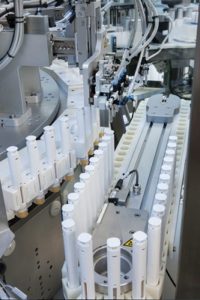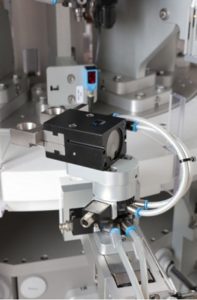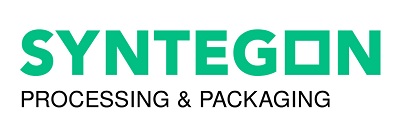Introduction: Self-administration of drugs is on the rise – due to a drastic surge in lifestyle-related diseases, as well as major advances in oncology and hormone therapy. Thanks to the use of auto-injectors, today patients can be treated, or rather treat themselves, more independently and autonomously than ever before. In contrast, pharmaceutical companies and service providers are facing a number of challenges when it comes to the assembly, labelling and packaging of these devices. In order to meet the growing demand for auto-injectors, they need production processes that are both time-efficient and customizable. Partners such as Syntegon Technology, formerly Bosch Packaging Technology, provide extremely flexible production equipment that can be used for the assembly and labelling of various auto-injector formats, allowing a faster time-to-market
The injectable drug delivery market has experienced a paradigm shift in recent years. Due to drastic changes in lifestyle and the accompanying increase in chronic diseases such as diabetes, the demand for injectable drugs has been growing for decades. This transformation relates not only to the quantity, but also to the way in which injectable drugs are delivered today. The traditional self-injection devices, such as standard syringes, are frequently being replaced by technologically advanced auto-injectors. This development also stems from the fact that self-injectable medicines are no longer used only for diabetes treatments or growth hormone therapies, but also for the increasing number of available parenteral biotherapeutics in oncology. Since multiple doses are needed over timefor these therapies, it is easier for patients if they can self-administer the medication at home rather than having to attend several doctors’ appointments.
Rising demand for self-administrable drugs
Auto-injectors are already standard equipment when it comes to medical emergencies, such as the immediate treatment of an allergic shock. All application areas have one thing in common: auto-injectors help avoid the common risks associated with self-administration via syringes, such as incorrect dosages and misuse, serious injuries and discontinuation of treatment. As a result of these developments, the demand for self-administrable drugs and the corresponding devices will rise even further over the coming years – and so will the demand for corresponding manufacturing solutions.
 The rapidly changing market demands for drug manufacturers to be highly flexible and to adapt their approach for this new generation of medication. Although many injector types have similar components, their design varies in terms of size, material and shape. This is a major challenge, especially for contractors and service providers that produce auto-injectors for pharmaceutical companies worldwide and therefore have to assemble a wide variety of differently shaped auto-injectors. Biopharmaceutical service providers like PCI Pharma Services, with sites across the globe, in Australia, the United States, Ireland and the UK, rely on partners that are able to provide them with highly flexible machines to match their individual requirements. Looking for an opportunity to further expand their wide range of production capabilities, PCI decided to opt for the flexible RRA assembly machine from Syntegon Technology.
The rapidly changing market demands for drug manufacturers to be highly flexible and to adapt their approach for this new generation of medication. Although many injector types have similar components, their design varies in terms of size, material and shape. This is a major challenge, especially for contractors and service providers that produce auto-injectors for pharmaceutical companies worldwide and therefore have to assemble a wide variety of differently shaped auto-injectors. Biopharmaceutical service providers like PCI Pharma Services, with sites across the globe, in Australia, the United States, Ireland and the UK, rely on partners that are able to provide them with highly flexible machines to match their individual requirements. Looking for an opportunity to further expand their wide range of production capabilities, PCI decided to opt for the flexible RRA assembly machine from Syntegon Technology.
Flexibility is key
PCI needed a solution that enabled them to continue providing excellent service and customized solutions to their clients while also meeting their own requirement for optimized equipment efficiency. “In our business, we need to meet diverse customer demands, so flexibility is critical to our success,” says Chris Blanton, Vice President and General Manager, Philadelphia, PCI Pharma Services. For Syntegon Technology, this meant that the machine supplied had to allow fast and easy changeovers for any known auto-injector type to ensure the necessary flexibility. At the same time, PCI needed to keep production downtime during format changeovers as short as possible. Within their cooperation, Syntegon Technology and PCI teamed up at an early project stage to define all the necessary parameters of the final equipment and develop a comprehensive concept to expand PCIs services and meet their customers’ needs. To define the project scope, the partners first had to clarify which current auto-injector types the machine must be able to assemble and which future types will be implemented at a later stage.
 In the end, PCI and Syntegon Technology decided to go with the design that provides PCI the most flexibility in the long run: asemi-automated RRA that will be used in the serialized line together with an automated cartoner. The RRA from Syntegon Technology combines complex functionality with a simple interface and safe assembly, including systematic control processes and inspections to ensure consistent quality, as well as meeting the device assembly instructions provided by end customers. This provides operators with a good process overview for easy monitoring. The machine’s fixture design ensures correct placement of all autoinjector components during the assembly, regardless of their size, material or design.
In the end, PCI and Syntegon Technology decided to go with the design that provides PCI the most flexibility in the long run: asemi-automated RRA that will be used in the serialized line together with an automated cartoner. The RRA from Syntegon Technology combines complex functionality with a simple interface and safe assembly, including systematic control processes and inspections to ensure consistent quality, as well as meeting the device assembly instructions provided by end customers. This provides operators with a good process overview for easy monitoring. The machine’s fixture design ensures correct placement of all autoinjector components during the assembly, regardless of their size, material or design.
The RRA is designed as a standardized, modular assembly platform, which is specifically configured to meet customers’ needs in terms of flexibility and capacity. It includes a fully automated base machine with roundtable transport and 12 to 24 process modules. The primary feeding section enables up to three operators to feed auto-injector components from trays. The machine is further equipped with a fully automated syringe feeding section and a syringe inspection module, as well as a secondary feeding section similar to the primary one. A labeling unit with laser-printing technology to print and verify variable data, and a tray loading unit for the finally assembled, labelled and approved auto-injectors round off the solution from Syntegon Technology.
Efficient production for high-quality results
The RRA’s key benefits are its ability to implement several auto-injector formats, and the rapid, tool-free changeover time of less than two hours. “We will be able to efficiently assemble auto-injector formats that cover 80 percent of today’s auto-injector market,” Blanton explains. “What’s more, the RRA can easily and cost-effectively be retooled for future new auto-injector types. This allows us to react quickly and efficiently to technological changes and to continue providing our clients with excellent services, regardless of market volatility.” The RRA also enables PCI to establish a flexible assembly process with a minimum of downtime between batches, which ultimately results in cost-effective and faster production and delivery. Thanks to its automated and flexible alignment, the machine’s utilization rate is very high, which offers PCI a high return on investment within a short time frame.
The RRA’s modular design also allows future adaptations and retrofitting, like the possible integration of robotized production systems, with only minor adjustments. In line with Syntegon Technology’s pharmaceutical line competence, the RRA can be complemented with further equipment for container handling, inspection, labeling and packaging. “Thanks to the new machine, we can monitor all critical processes and are able to ensure that the devices are assembled correctly so that they perform as expected in the field to make patients’ self-administration as convenient and safe as possible,” sums up Blanton.





















